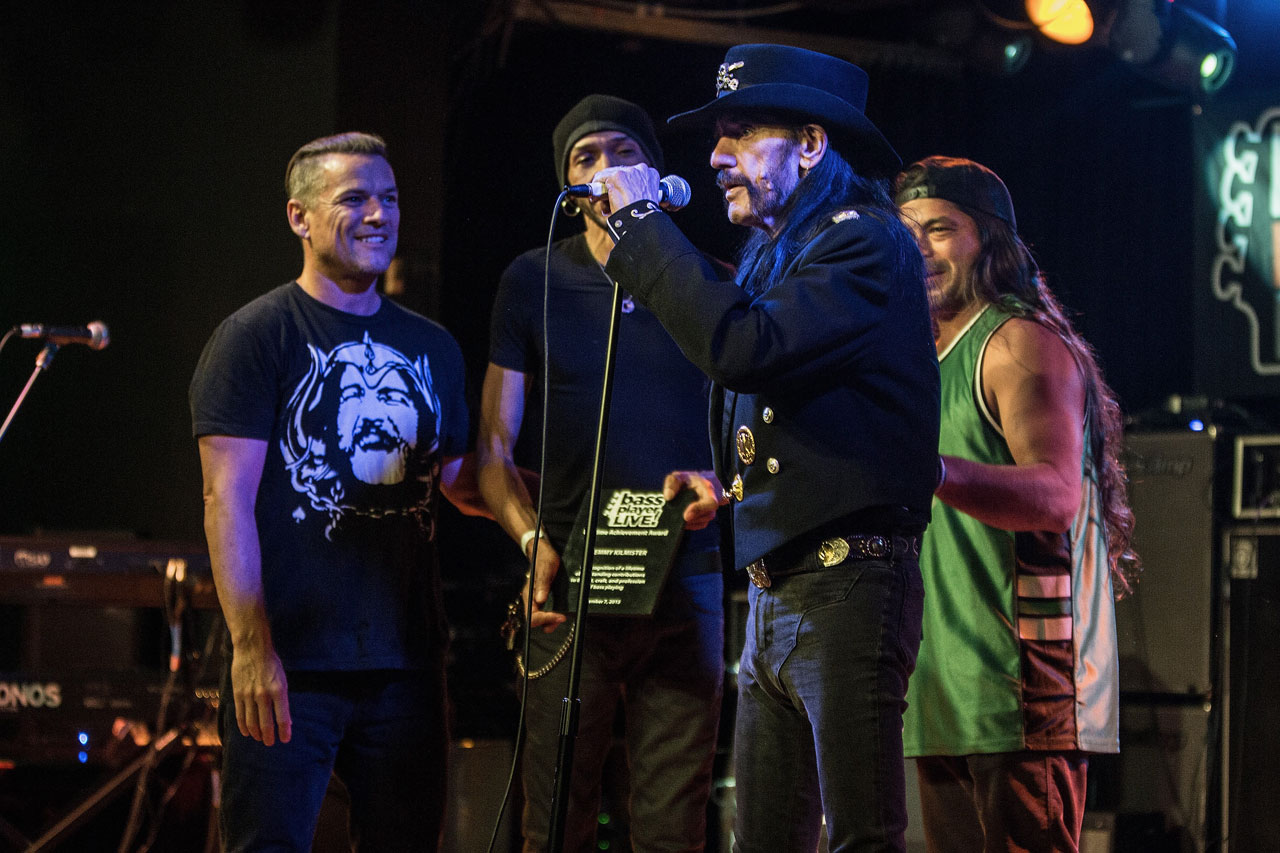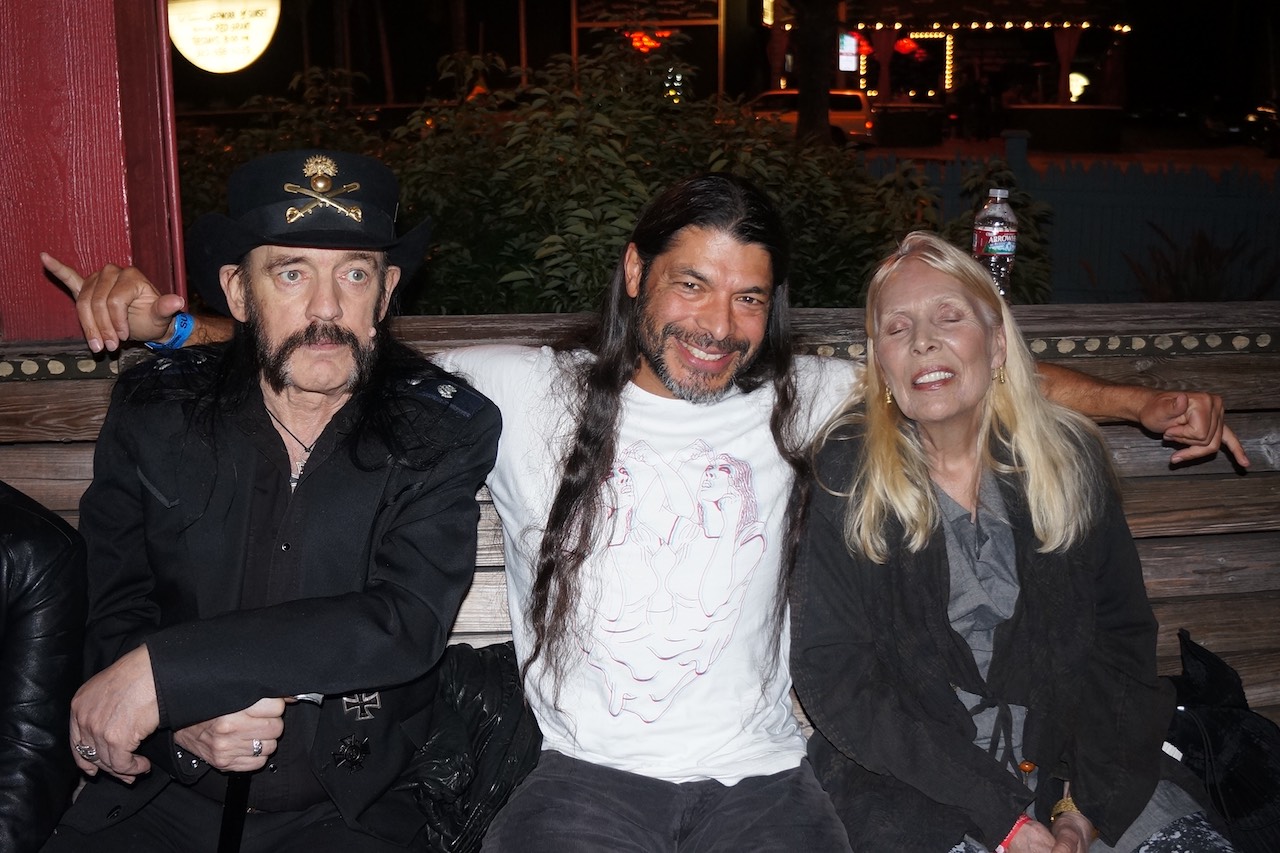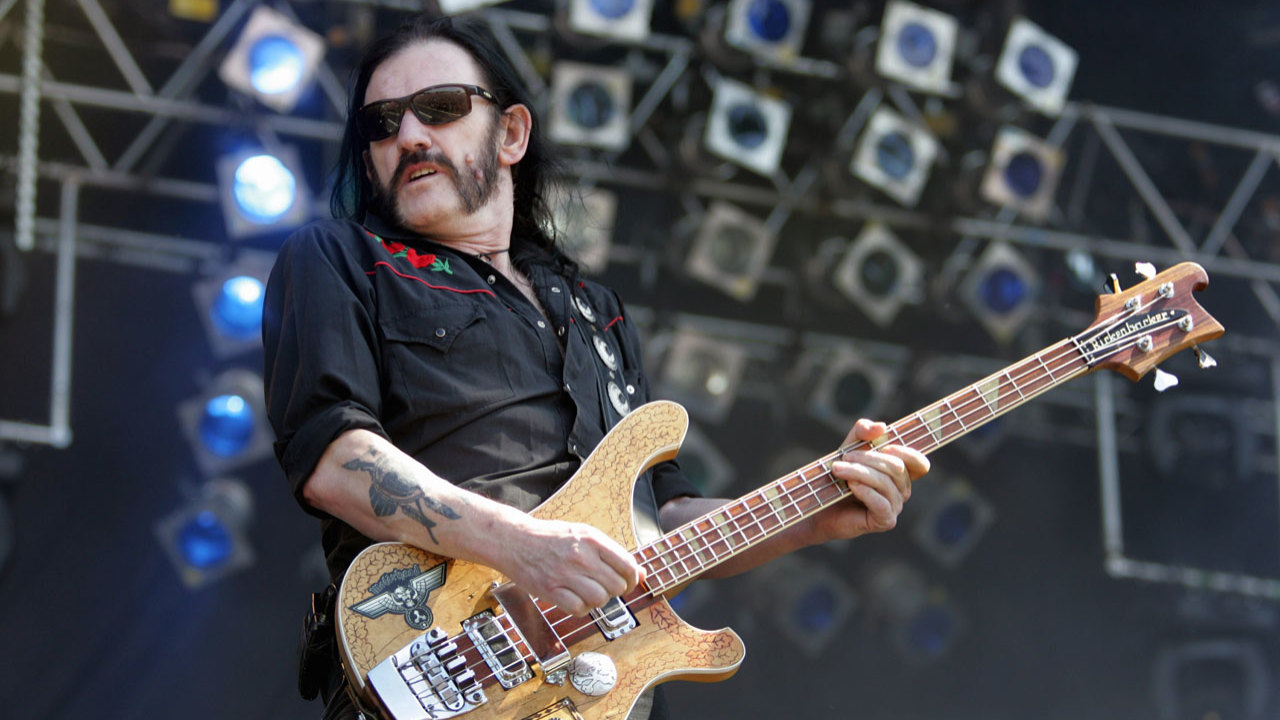Next year’s UK tour with Saxon and Girlschool will mark four decades of rock‘n’roll from Motorhead. During that time, millions of column inches have been filled by tales of Lemmy Kilmister’s hedonism and, more recently, by worrying news of his health. But first and foremost, Lemmy is a musician. So Classic Rock has enlisted another of the most famous bass players in rock music, Metallica’s Robert Trujillo, to explain what makes Lemmy great.
As a boy, did you pretend to be Lemmy in front of the bedroom mirror?
Didn’t we all? [Laughs] I’m 51 now, and to me Lemmy has always represented the outlaw. He’s the musician that always did things his way, and in doing so he paved the way for so many other bands.
Did you ever support him in your pre-Metallica days with Suicidal Tendencies?
We definitely supported Motörhead at some European festivals, but there was never a tour between the two bands. However, I’ve been with Metallica for 13 years now, and Lemmy’s been in my life on and off throughout that time.
Do you have a favourite memory of him?
Oh yeah, at Ozzfest in the US, seeing him wearing his daisy duke shorts. [Laughs]. Those are almost like Speedos, and he was out there sunbathing – he didn’t care what anyone thought of him. The rest of us were wearing shorts down to our knees. But he was proud of his daisy dukes, and that’s what I love about Lemmy. He’s so true to himself.
The most sincere truth about Lemmy is that he’s not about the quick buck. His style is so unique, in a way he’s a bit of a rock‘n’roll fashion trendsetter. He doesn’t have to say anything when he enters a room, with the energy he projects it’s like Clint Eastwood has arrived. He’s cool.

**When you presented Lemmy with a lifetime achievement award at Bass Player Live! in Los Angeles, he quipped: “I only played bass because I was a rotten guitarist”. But it’s a half-joke, though. He does play that bass like a six-string. **
That’s what’s so special about his technique. As a player, it’s so important to find your own style and Lemmy has done that. In the same way as Jaco Pastorius, he has a sound that’s completely unique to him. Lemmy incorporates chords and distortion and he has one of the most unique Marshall amplifiers I’ve ever seen. I’m afraid to turn the thing on… it looks like it’s about to explode. The thing has wings. So Lemmy’s even thinking about what his amp looks like. That’s craftsmanship.
For the benefit of non-musicians, how difficult is it to play in that style?
It’s tough. But it becomes more complex still when you’re singing and playing at the same time. And that’s another thing: in vocal terms, Lemmy is also one of a kind. Some people can come close to Robert Plant, or maybe get into the zone of James [Hetfield], but I’ve yet to hear another singer to nail Lemmy’s style.
Whether it’s the settings on his amp, or the technique with a pick, sometimes less is more. And Lemmy sounds simple, but what he does isn’t easy at all. No one can to it like Lemmy. Even his style of presentation… the way he tilts the microphone downwards, the attention to detail of this man is special.
In the pantheon of all-time great bassists, where does Lemmy stand? Top five, maybe, or even higher than that?
Well, it’s an interesting question. There have been so many greats; Jaco Pastorius, Geezer Butler, Geddy Lee and the Motown players, but Lemmy’s right up there. I commend so many players but when you have that combination of style, uniqueness, edge and attitude, he’s definitely top five. One hundred per cent. But that number one slot is so flexible, depending on the day or what you’re choosing to listen to.
A Martian comes down to planet Earth and you want to play him a song that sums up Lemmy’s style – which one do you pick?
That’s easy, and it’s a generic answer but Ace Of Spades is among the most classic songs in rock ‘n’ roll. It’s definitive Lemmy. It exudes power, it has groove and it’s a fun song to play. It’s a classic in the same way as Whole Lotta Love is, or even Enter Sandman. It’s one of those songs that’s undeniable. I could say Damage Case or Killed By Death, maybe, but for me it’s a no-brainer to pick Ace Of Spades.
I thought you might have given the nod to Metropolis, which is a real showcase for that bass-as-lead-instrument technique we’ve discussed?
Yeah, but for me Ace Of Spades is a statement about bass playing on its own. A song doesn’t need to have a bass solo or even a lot of notes to make its point. When Lemmy does take a solo he has a very bluesy feel, he bends notes and he puts his heart and soul into the music. But for me it’s about the riff, and it’s hard to think of anything more classic than Ace Of Spades.
Can we hear your story about Lemmy and Joni Mitchell?
I met Joni about a year ago and a few months afterwards there was an event honouring Keith Moon and John Entwistle at the House Of Blues in Hollywood. Lemmy, who was receiving an award of his own, was there. I was outside and Lemmy came over for a chat and a cigarette. I had invited Joni but for one moment didn’t think she would come, but she did. She walked over and sat down with us and lit up her own cigarette. I was sat in the middle of them, breathing in their smoke but I really didn’t care, it was such an incredible moment.
Lemmy takes a big hit of his cigarette, and so does Joni, and I introduced them. Joni leans across and says, ‘Hi, Lenny’. Lemmy doesn’t flinch, takes a big drag of his cigarette and asks; ‘Joni, what fucking chord were you playing on Court And Spark? I could never figure it out’. And Joni says, ‘Well, Lenny, I do a special open tuning’. Lemmy turned out to be a huge fan and there was a long discussion about songs of hers. I just sat there, inhaling that smoke from the lungs of Lemmy from Motörhead and out of Joni Mitchell; it was among the coolest, amazing moments of my life because this was two iconic artists that are so true to their art and their music. It’ll probably never happen again, so I savoured the moment.


